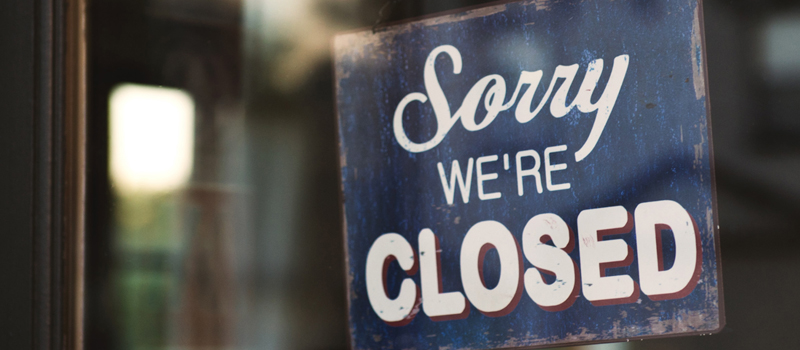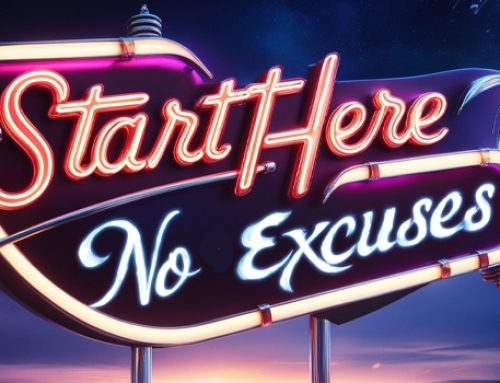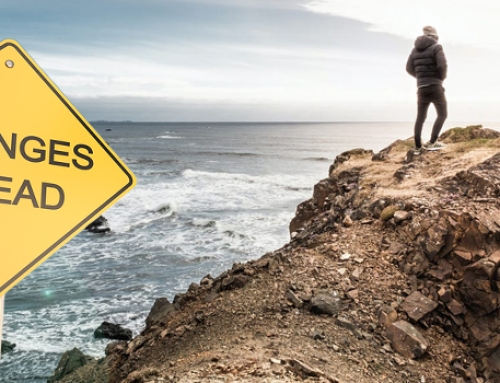It has been over a decade when the financial world ended as we knew it. The tried and true guidelines for financial health were discarded in 2008 and since that time we have been rolling along in uncharted territory. Those who have tried to keep the status quo or don’t understand what’s constantly changing they are being left in the lurch. Whether you see the economy building or deteriorating for you, a much different outlook needs to be taught and promoted.
We are at least two decades past the time when someone was able to go to college, get a job and work that until retirement. Along with that way of thinking the pensions that were promised have gone the way of the dodo bird. In fact, the time that one could expect to stay in the same industry their whole career is gone as well. And quite frankly, that way of thinking of “you are in what your career is” should be done away with. we are not what we have chosen to do as a profession.
We are who we are because of our character, personality, and the talents we have chosen to develop, not what we do for money.
But as long as fiat money is still universally accepted, from what I can determine by simply opening my eyes and looking around, we are nowhere near the recovery that the propagandists have been touting. If anything, we are barreling forward to a gigantic debt-ridden collapse, not unlike the big crash of 1929.
If that brings to you a lil bit of anxiety, you aren’t alone. I say this without intending to invoke fear. Quite the contrary. Living in fear is the easiest way to one’s own decimation. Fear paralyzes, fear is of the unknown and only knowledge, the right knowledge will bring you the know-how to dispel that fear. Surviving an economic meltdown in any day and age is something that I will do by continuing to build up my supplies, skills, and knowledge so that I can soldier through whatever the bad guys (and you know who I mean) toss my way, fear be damned.
So How Bad is Bad?
Who is to say? One person’s garbage is another’s jewel. However, generally speaking, when everyone else is in the same boat and staring at the same set of economic circumstances can be bad all the way around. For example, we’ve all felt the inflation of the buying effectiveness of our dollars (when did a fast food meal go from $6 to $11?). The prices at the store, for everything, has risen over the last 10 years, we have less buying power with the money we now have.
I see a lot of financial downsizing. I see people making the decision to pay for food or for medicine but not for both. I also see vacant storefronts while the thrift stores are doing a booming business. Most of all I see a thirst for learning how to do things the “old fashioned way” or like the pioneers, the Native Americans, or our grandparents during the great depression.
This “pandemic” fiasco perpetrated on society as a whole has not done anyone any favors either.
We’ve all seen those stories from the streets of New York on FB and the expose’s of PBS’s Frontline. To see those who have been caught in the downward spiral and mindset of scarcity or pigeon-holed into an economic class that cannot provide aptly for one’s daily needs. These instances and stories break my heart. The needless suffering, being exploited by the power elite seeking to concentrate their control over others.
The Future Looks Bleak with an Ordinary Perspective
Why? Here are some of the reasons:
- A total dependence upon the structure of others providing an economic opportunity for them.
- There is a continued lack of those employment opportunities for those that are currently unemployed or underemployed.
- Droughts, out-of-the-blue storms, and other natural disasters are affecting the production of mass farming resulting in increased costs for food
- The cost and dichotomy of health insurance, for many, has doubled if not tripled or has become unattainable
- Devaluation of homes and real property continues in many parts of North America
- Out of sight costs for ‘normal’ living. e.g. heating, water, electricity, fuel.
- Increasing crime rates – Crimes against persons (knifings, murders, even road rage) indicate a barometer of frustration and malcontent among citizens in almost every modern, first world country
- Quantitative Easing – We are on our 8th or 9th round. Part of the reason for the inflation, this has never been done past 2 rounds before, ever.
- $23 Trillion in National debt and counting – this simply cannot ever be paid back, let alone all the unsecured obligations of now over $100 Trillion. It will inevitably be a question of WHEN they default, not if.
These are just a few indications that an economic meltdown of horrific biblical proportions is on its way. Oh sure, there are pockets of economic growth here and there. But for the most part, I see and sense a feeling of helplessness and hopelessness when it comes to money and matters relating to the economy for the general public. As much as I hate to admit it, even I feel that the middle-class life I have known most of my adult years will never be the same.
What can one do?
Learning to become self-sufficient is a darn good start. The problem, though, is that you can store water and food, stow away some cash or even gold, and insulate yourself from short-term off-grid situations. But what happens if the economic meltdown lasts longer than six months or or a year or even 10 years like in the 1930’s?
I feel that the only solution is to embrace a lifestyle that breaks with what has been taught as the “American Dream”. That going to college for a degree, any degree, getting a house in the suburbs with a white picket fence, working the corporate ladder over years of swallowing your morals and stamping down your ethics. That getting that gold watch at retirement and golfing or fishing all day until they put you 6 feet under the type of diatribe that is designed to keep us trapped and in fear.
No, that wasn’t the original American Dream. The true dream of our Forefathers was to live free. To have the liberty to pursue what they wanted instead of what a potentate would allow. That they wanted the rules and regulations of a tyrannical society to be done with and that a man (or woman) be active in their life. Growing, educating themselves, growing closer to the Providence of their hearts and the God of their soul. They set out to do this when they Declared themselves Independent and as they built the Constitution. That a man on the merits of his character not of his pocketbook would be measured. That his talents and skills would go far beyond what he did for a profession. Ben Franklin anyone?
We have to eschew this false facade that for the last 110 years has been shoved down our throats. We need to embrace a way of living where consumption is kept to a minimum. And to that end, here are some tips that I have been tossing around (in no particular priority or order).
1. Prepare your mindset. Change your perspective from the prevailing societal norms and expectations. From being a possessor of material goods and defined by those things to one of a seeker for knowledge and a purveyor for truth at all costs.
2. Be a nice person. Treat those that are less fortunate with respect and be mindful that hard times may affect their behavior. Be friendly and neighborly and do not shun them because they are down and out. Remember, under different circumstances, it could be you that has fallen upon bad fortune. Do not let their present situation color who they truly are.
3. Secure the homestead. Get one in the first place. A piece of land that you can work and improve and develop. Then secure the homestead with firearms, weapons, pepper spray, or even a baseball bat. The choice is yours. Don’t brag about what you have and do everything you can to make sure you and your supplies are safe.
4. Avoid debt. Sometimes it cannot be avoided (land purchases for instance). If cash is short this week, wait until next week. Live within your means even it means that you will eat beans and rice for a few days. Put a moratorium on clothing purchases for one season.
5. Earn the Dough. Keep the money train moving as long as money is being used. It is the easiest transfer of value right now, and let it fuel what you need to be truly self-sufficient.
6. Get extra income streams. However you can without doing things illegally to earn the cash. Sell on eBay, stock shelves, mow lawns. And judiciously use that cash for the purposes below.
7. Grow your food. Take for instance a robust Aquaponics system. You’ll be amazed at what you will be able to grow in such a tiny space.
8. Stay healthy. Eat good food and not a lot of junk. Get physical exercise and try to maintain a decent weight. Most health problems stem from the body’s systems trying to compensate for the imbalance, and having too much fat is an imbalance.
9. Manage food costs. Stock up when you see a great sale. Double up and by two instead of one, or three instead of two, and so on.
10. Create a mini-store in your own home and shop from your own supplies. Your pantry will become your friend when money or supplies are short. Don’t forget sundry items and personal items as well as food when it comes to stocking your home-based 7-11.
11. Reduce housing costs. This may mean taking in boarders or sharing your home with extended family members. This also includes the utility costs. Look for ways to use less electricity, water, or gas. Keeping them at minimals or even at no cost helps your wallet go a bit further.
12. Reduce the number of vehicles you own. Do you really need a fleet with the associated costs of insurance and maintenance? Instead of an expensive vehicle, get yourself a scooter or motorcycle as a second vehicle and be a stickler at getting 60 mpg.
13. Purchase used goods. Not everything has to be brand spankin’ new. You can find some steals on Craigslist or Ebay. Or, if local is more your speed, go to garage sales and thrift shops. I am not suggesting that you purchase everything used, but think about your purchases and when practical, buy used and pocket the change.
14. Barter your time for goods or services. Walk dogs, water plants, help out with someone’s garden. Be creative.
15. Use what you have. Become Ms. and Mr. Fix-it and make repairs instead of buying new.
16. Reduce communications costs. Do you really need cable nowadays? And what about that smartphone that is costing $150 a month? Stay connected, but do it frugally.
17. Find entertainment on the cheap. Going to a movie theater these days can cost up to $50 for just two (even if you can find one open). There are ways to get your entertainment more inexpensively. Be creative and collaborative with those around you. Maybe even build up those storytelling skills of yours.
18. If you plan for the worse and it never happens, be joyful. On the other hand, if you plan for the worse and you are prepared, you will reduce the possibility of panic in the short term and depression in the long term.
19. Have an escape plan. I am a big believer in the concept of shelter in place but if you need to evacuate, be ready. Have a plan so all family members know how to communicate with each other and where to meet. Learn about escape routes in your area and practice getting out of dodge.
20. Recognize that frugal is not a dirty word. It is a smart word. Frugal is not being cheap, it is being sensible. Being frugal now will allow you to get the most mileage out of your funds with something left over for a rainy day – or for the day when an economic meltdown occurs.
The Overall TakeAway
So there you have it. This is the lifestyle design that anyone can currently embrace, not so much out of worry or fear, but because one doesn’t need to be worried and afraid. I want to be able to enjoy life and I plan to do so by learning to do things not buy things, learning to smell the roses, and learning to enjoy the simple pleasures of life and liberty.
Our world and our society is definitely changing. Don’t be left behind because you forgot to prepare for a time when frugality becomes the norm.






